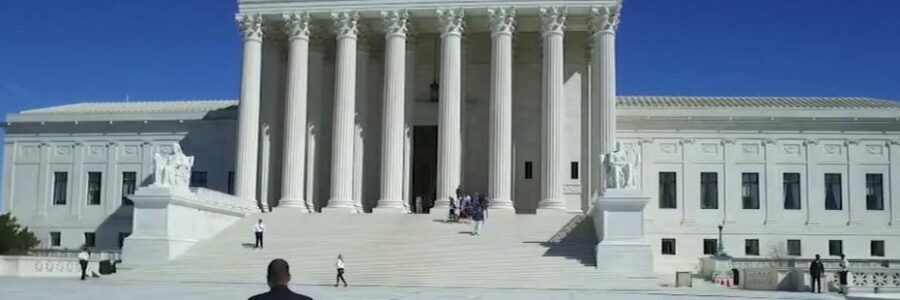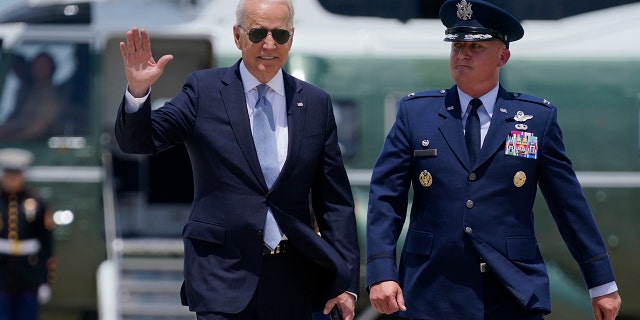
Biden to target state election bills, Supreme Court decisions in voting rights speech in Philadelphia
Supreme Court upholds Arizona voting laws
Fox News’ Shannon Bream discusses the Supreme Court’s decision on ‘Special Report’
President Biden is expected to target new election bills in states across the country that administration officials say are erecting new barriers to voting, as well as Supreme Court decisions they claim have weakened federal tools to combat “regressive voting laws,” in a speech focused on voting rights in Philadelphia on Tuesday.
The president’s speech Tuesday is set to lay out the “moral case” for voting rights, amid, what administration officials have called “worrisome action on voting,” saying an “alarming number of states,” like Georgia, Florida, Iowa, Montana, Kansas and Arkansas are introducing new voting bills that would create barriers to the ballots.
Biden’s speech in Philadelphia, to be delivered at the National Constitution Center, is intended to be the start of somewhat of a public pressure campaign, White House aides said, even as legislative options to block voting restrictions face significant obstacles.
“He’ll lay out the moral case for why denying the right to vote is a form of suppression and a form of silencing,” White House press secretary Jen Psaki said Monday. “He will redouble his commitment to using every tool at his disposal to continue to fight to protect the fundamental right of Americans to vote against the onslaught of voter suppression laws.”
Psaki said Biden would vow to “overcome the worst challenge to our democracy since the Civil War.” But aides suggested his address would not contain much in the way of new proposals.
President Joe Biden walks to board Air Force One for a trip to Philadelphia to deliver remarks on voting rights, Tuesday, July 13, 2021, in Andrews Air Force Base, Md. (AP Photo/Evan Vucci)
Congressional Democrats have tried to respond with a sweeping federal voting and elections bill that Senate Republicans have blocked. Most Republicans have similarly dismissed a separate bill, the John Lewis Voting Rights Advancement Act, which would restore sections of the Voting Rights Act that the Supreme Court has weakened.
Those roadblocks have increased focus on Senate filibuster rules, which, if left in place, would seem to provide an insurmountable roadblock, requiring 60 votes in the evenly split, 100-member chamber to even bring up controversial legislation. Republicans have been unanimous in opposition to eliminating the filibuster, and it would take elimination or at least modification for the bills to have a chance of passage.
White House aides say that Biden strongly supports both pieces of legislation, saying H.R. 1, specifically, would set some basic national standards for voting in federal elections, including early voting, voting by mail and modernized voter registration. White House aides also say the president supports restricting gerrymandering as states draw new district maps and reform campaign finance and basic ethical rules for federal officials.
As for Biden’s unilateral actions with regard to voting, in March, he signed an all-of-government executive order directing agencies to determine how they could better distribute voting information and increase opportunities to participate in the electoral process. The White House says they are running an interagency process to ensure full implementation.
The president also has named Vice President Harris to lead a fight for voting rights in the public arena, appointed “pathbreaking leaders” with voting rights experience at the Justice Department including Vanita Gupta and Kristen Clarke, and requested a 16% increase in funding for the DOJ’s Civil Rights Division in the budget.
Biden is expected to speak about Texas, after Democrats in the state took action to block a Republican bill that would tighten ballot restrictions. Texas Democrats traveled to Washington in the midst of a special legislative session, which concludes early next month.
“Once they step back into the state they will be arrested and brought back to the Capitol and we will be conducting business,” Texas Gov. Gregg Abbott said Monday.
Meanwhile, the Justice Department, last month, filed a lawsuit against the state of Georgia to challenge several provisions of the state’s new voting law.
The provisions the DOJ will target include a ban on government entities handing out unsolicited absentee ballots; fines on civic groups, places of worship and advocacy organizations for distributing follow-up absentee ballots; and shortening absentee ballot deadlines to 11 days before Election Day.
Fox News has learned that Texas, Alabama, Florida and Arizona may soon face lawsuits from the Justice Department over their new voting legislation.
Republicans in Georgia and Texas are slamming the lawsuits, and threats of further lawsuits, as “political stunts,” and are vowing to fight to protect their states’ election legislation.
The Associated Press contributed to this report.
Source: Read Full Article

